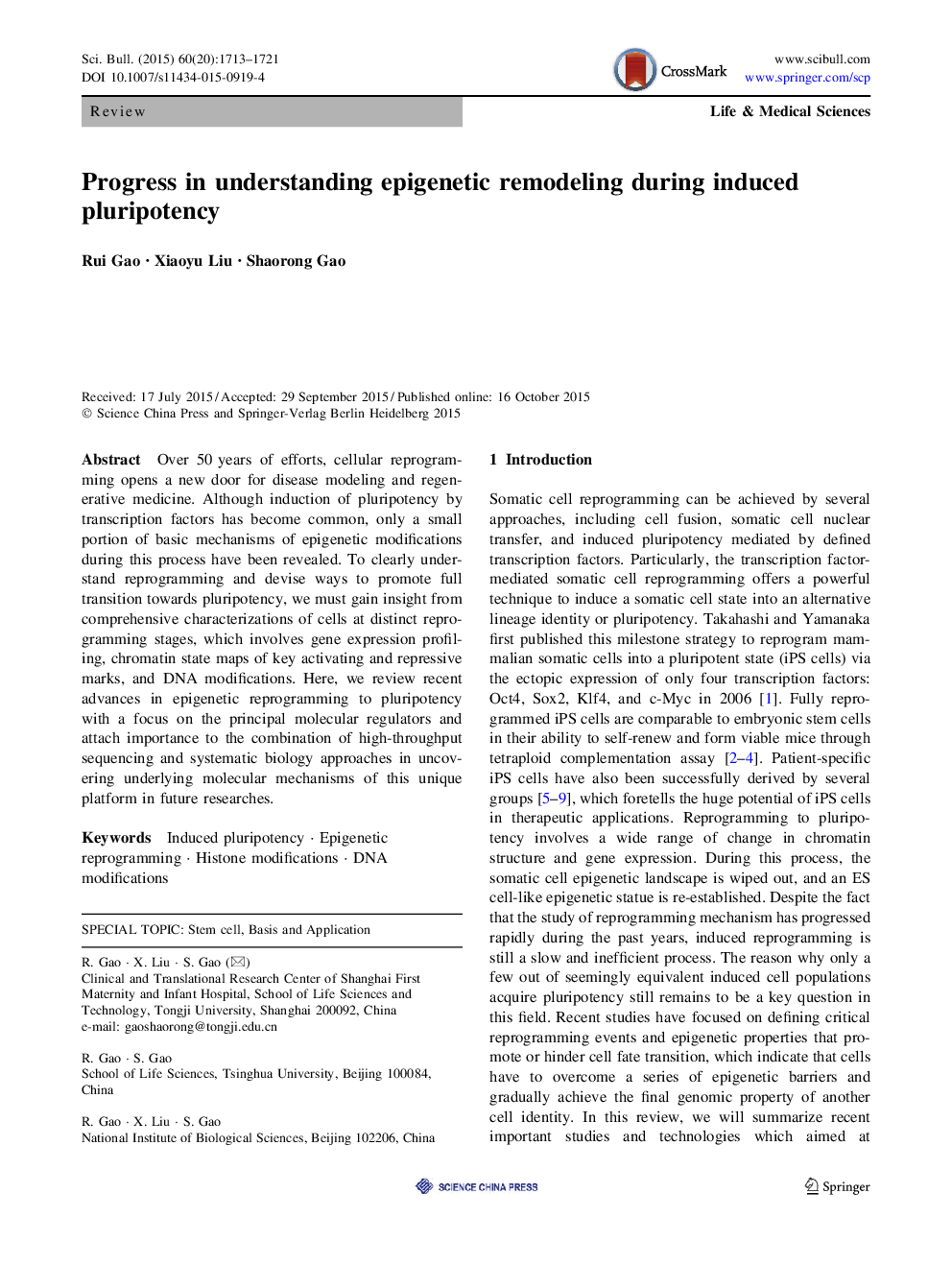| Article ID | Journal | Published Year | Pages | File Type |
|---|---|---|---|---|
| 5789101 | Science Bulletin | 2015 | 9 Pages |
Over 50 years of efforts, cellular reprogramming opens a new door for disease modeling and regenerative medicine. Although induction of pluripotency by transcription factors has become common, only a small portion of basic mechanisms of epigenetic modifications during this process have been revealed. To clearly understand reprogramming and devise ways to promote full transition towards pluripotency, we must gain insight from comprehensive characterizations of cells at distinct reprogramming stages, which involves gene expression profiling, chromatin state maps of key activating and repressive marks, and DNA modifications. Here, we review recent advances in epigenetic reprogramming to pluripotency with a focus on the principal molecular regulators and attach importance to the combination of high-throughput sequencing and systematic biology approaches in uncovering underlying molecular mechanisms of this unique platform in future researches.
